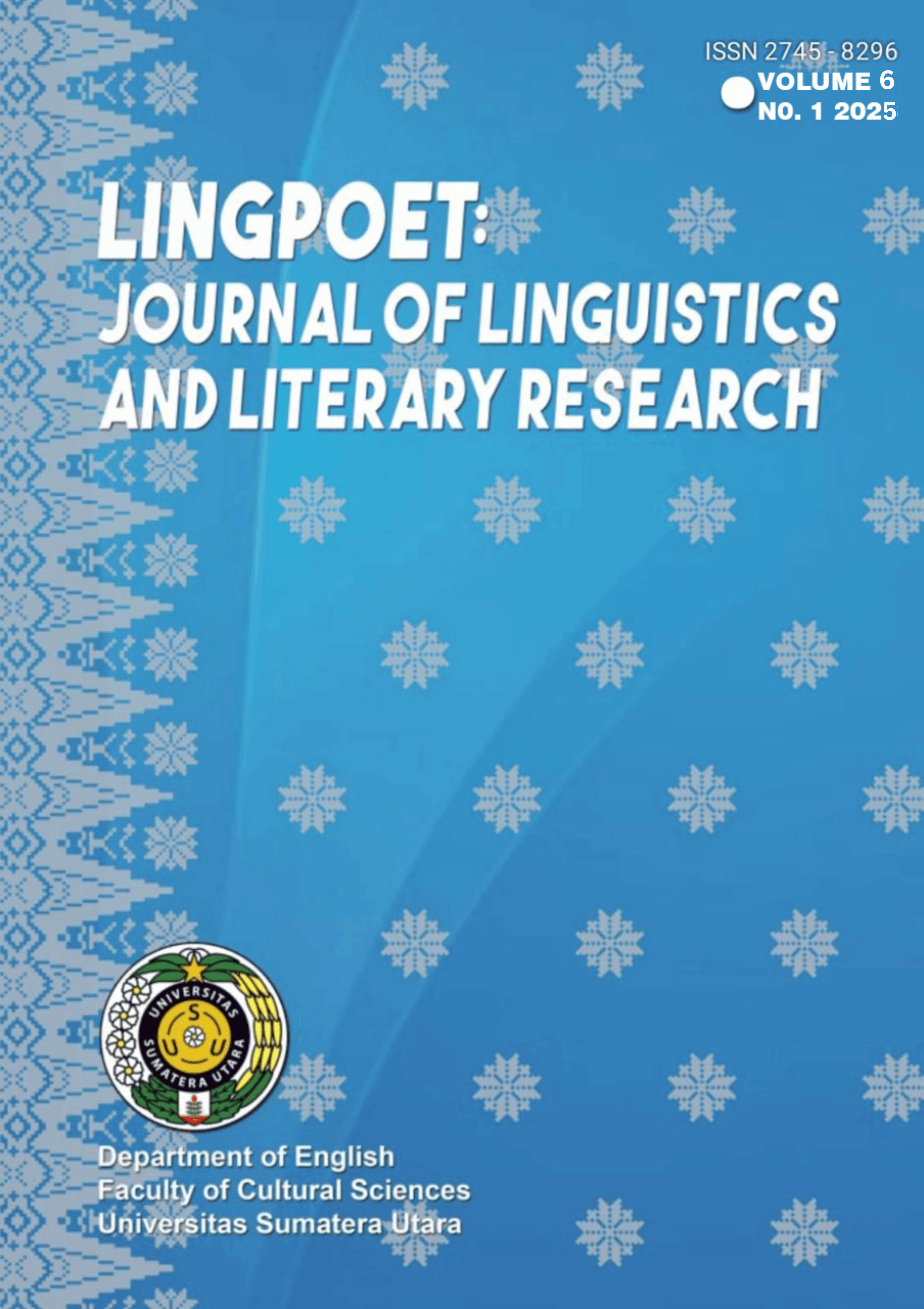Enhancing Pronunciation Through Storytelling: A Case Study of Two EFL Learners
Keywords:
Case Study; EFL Learners; Pronunciation; Storytelling; ArticulationAbstract
This study aims to investigate the effect of storytelling on pronunciation development among SMP and SMA students. The research focuses on how meaningful repetition, emotional engagement, and confidence-building in stories support articulation, intonation, stress, and rhythm. Using a qualitative approach, students’ storytelling performances were recorded, analyzed, and observed to identify patterns of pronunciation improvement. The results show that repeated phrases in narratives helped students master challenging sounds naturally, emotional content improved prosody and expression, and engaging stories enhanced speaking confidence. Storytelling created authentic, motivating contexts that encouraged students to practice language purposefully, combining cognitive, emotional, and social engagement. These results suggest that storytelling is a dynamic, student-centered strategy for pronunciation teaching, offering repeated practice, emotional engagement, and confidence support simultaneously. Incorporating storytelling into language instruction can improve students’ oral proficiency, prosody, and communicative effectiveness, making pronunciation learning more natural, effective, and enjoyable.
Downloads
References
References
Alruwili, A. A., & Elsawy, H. E. A. (2024). Story-Based Extracurricular Tasks for Improving EFL Learners’ Speaking Skills. Eurasian Journal of Applied Linguistics, 10(1), 254–268. https://doi.org/10.32601/ejal.10122
Bai, Y., & Xian, H. (2024). Exploring the interplay of digital storytelling, L2 speaking skills, self-regulation, and anxiety in an IELTS preparation course. Humanities and Social Sciences Communications, 11(1), 1–15. https://doi.org/10.1057/s41599-024-04109-8
Braun, V., & Clarke, V. (2006). Using thematic analysis in psychology. Qualitative Research in Psychology, 3(2), 77–101. https://doi.org/10.1191/1478088706qp063oa
Chang, X. (2025). From Emotions to Expressions : Integrating Emotional Intelligence in English Pronunciation and Fluency Training. 666–674.
Gagliardi, M. R. (2016). Speaking And Pronunciation Confidence Of Middle School ESL Students At Various Proficiency Levels.
Gilakjani. (2016). English Pronunciation Instruction: A Literature Review. International Journal of Research in English Education, 1(1), 1–6. www.ijreeonline.com
Harmer, J. (2015). The Practice of English Language Teaching - Softcover (5th ed.). Pearson Education.
Hongmei Cao, X. X. and C. Y. (2024). Improving EFL learners’ self-confidence in English-speaking performance with World Englishes teaching. Cambridge University Press: https://doi.org/https://doi.org/10.1017/S0266078424000269
Karmida, K., Hasibuan, A. L., & Nurlaili, N. (2024). An Analysis of Students’ Low Confidence in Speaking, As the Attribute of Pronunciation Context. Journey: Journal of English Language and Pedagogy, 7(2), 331–336. https://doi.org/10.33503/journey.v7i2.845
Lucarevschi, C. R. (2018). The role of storytelling in the development of pronunciation of Brazilian learners of English as a foreign language. 181.
Pakpahan, F., Sadira, L., Syifah, N., Jodi, S., Panjaitan, E., & Meisuri, W. (2025). The Effectiveness of Storytelling in Improving Speaking Skills of Junior High School Students. KIRANA : Social Science Journal, 2(2), 48–55. https://doi.org/10.61579/kirana.v2i2.474
Rebecca Isbell, Joseph Sobol, L. L. & A. L. (2004). The Effects of Storytelling and Story Reading on the Oral Language Complexity and Story Comprehension of Young Children. Volume 32,. https://doi.org/https://doi.org/10.1023/B:ECEJ.0000048967.94189.a3
Saito, K. (2012). Effects of Instruction on L2 Pronunciation Development: A Synthesis of 15 Quasi-Experimental Intervention Studies. TESOL Quarterly, 46(4), 842–854. https://doi.org/10.1002/tesq.67
Siti Inaya, Ila Amalia, T. I. S. (2024). The Effect of Using Digital Storytelling on Students’ Listening Comprehension. EFL Education Journal, 11(2), 213. https://doi.org/10.19184/eej.v11i2.47750
Tracey M. Derwing, M. J. M. (2015). Language Learning & Language Teaching. (Vol. 42). https://doi.org/https://doi.org/10.1075/lllt.42
Yin, R. K. (2018). Case Study Research and Aplications: Design and method. In Case (Vol. 53, Issue 9).
Downloads
Published
How to Cite
Issue
Section
License
Copyright (c) 2025 LingPoet: Journal of Linguistics and Literary Research

This work is licensed under a Creative Commons Attribution-ShareAlike 4.0 International License.













